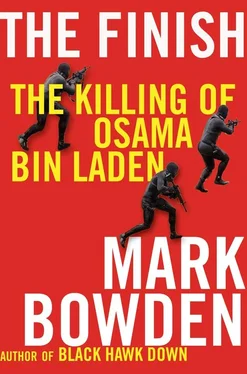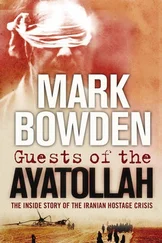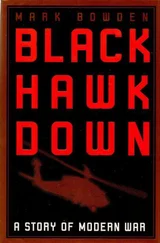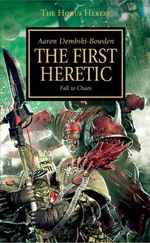Before he left to fly back to his own headquarters, Petraeus was already thinking about adapting his mission.
In New York, graduate student Ben Rhodes saw the tragedy unfold from Brooklyn. He was working toward a master’s degree in creative writing at NYU but he also dabbled in hometown politics and, that day, had been pressed into service handing out flyers for City Council candidate Diana Reyna—it was an election day in New York. Rhodes had been pushed into political work after confronting borderline socialists at his upper west side prep school and then Texas-style Republicans at Rice University. He feared doing nothing would concede the field to dogmatism. So now he was on the Brooklyn Heights waterfront handing out flyers.
The flames and smoke rising from the North Tower were shocking enough. Rhodes assumed there had been a bad accident. Seventeen minutes later, across the East River he saw a bright flash high on the South Tower, and then both were aflame high up, sending two great black plumes across the Manhattan skyline. He couldn’t believe his eyes. The radio of a cop standing near him squawked with a call for all hands to respond, and the air erupted with sirens. Rhodes turned to see the Brooklyn-Queens Expressway below him filled with flashing ambulances and police cars racing north toward the Brooklyn Bridge and across to Manhattan.
The flames and the smoke trails did not diminish. The magnitude of the event was hard to comprehend. He was still watching when the South Tower fell. No sound reached him across the river. No rumble or crash. The skyscraper just abruptly pancaked down, folding in on itself as if it were something it had been designed to do, vanishing into a great white billowing cloud of debris.
He started walking. It seemed clear that the North Tower was also doomed, and he was not eager to see it. The towers had been landmarks of his childhood in New York. There was nothing in his twenty-three-year-old worldview to accommodate what he had just seen. Rhodes admired Ernest Hemingway—he had carried a paperback copy of The Sun Also Rises in his back pocket for years as an undergrad. At his core, Hemingway believed in facing hard truths head on. Rhodes the would-be novelist walked away from fiction that day, too. Whatever this was he had just seen, it was a thing that needed to be met head on. Like many Americans who witnessed those events, his life would never be the same.
President Bush was airborne when the towers fell. He and his inner circle watched from the staff room at the front of Air Force One, where they could pick up local TV feeds from below. The signals faded in and out. It alarmed Bush that the plane had no satellite TV feed—something he would correct. One commentator said that responsibility for the attacks had been claimed by the Democratic Front for the Liberation of Palestine.
This made no sense to Morell. That organization was an old splinter group of the Palestine Liberation Organization and all but defunct.
“What do you know about this group?” Bush asked him.
“They don’t have the capacity to carry out an attack like this,” Morell answered.
Within minutes the report was retracted.
The transition to war footing was striking. When the motorcade had reached the tarmac at Sarasota Bradenton International Airport, Air Force One had been ringed with Secret Service armed with automatic rifles. No one had seen an attack like this before, so no one knew what to expect next, who was behind it, or how extensive it would prove to be. Everything and everyone was under suspicion. Agents checked every bag before the president’s traveling party climbed the stairs to the plane, including Card’s and Morell’s, including even those of the military officer carrying the nuclear codes.
As the CIA man stepped on the plane, he had asked one of the agents, “Where are we going?”
“We’re just going to be flying around,” he said.
With the sky raining planes, perhaps the safest place for the president would just be… up.
They flew to Barksdale Air Force Base in Louisiana, to refuel and take on supplies. The taxiway was lined with bombers. Reports of further attacks kept coming in: bombs, more aircraft-turned-missiles, a threat on Air Force One, a report of an attack aimed at Bush’s ranch in Crawford, Texas. All would prove false, but in light of how audacious and terrible the known attacks were, every new alarm sounded plausible.
When the president got off the plane to tape a message to the American people, Morell stayed in his seat with most of the staff. The plane’s crew hastily loaded water and food; no one was certain how long the president would continue flying around. When a military aide came down the aisle with a flight manifest, selectively ordering people off, the CIA man asked what was going on.
“We’re having a bunch of people deplane here,” he said.
“What about me?” Morell inquired.
“Andy Card says you stay.”
They took off with the load lightened, bound for a Strategic Air Command base in Omaha, Nebraska. When they were back in the air, Morell was summoned once more to Bush’s cabin.
“Who do you think did this?” the president asked him.
Morell had been on the phone to Langley, but so far no one had been able to give him a definite answer.
“There are two terror states capable, Iran and Iraq,” Morell told the president, “but both have everything to lose and nothing to gain. If I had to guess I’d put a lot of money on the table that it was al Qaeda.”
“So, when will we know?” Bush asked.
Morell couldn’t say. He explained how long it had taken the agency to affix blame with certainty in earlier attacks—the Khobar Towers bombing in 1996 in Saudi Arabia, the U.S. embassy bombings in Tanzania and Kenya in 1998, the bombing of the USS Cole in waters off Yemen in 2000. In the first case it had taken ten days; in the latter ones, a few months.
“We could know it soon, or it could take a while,” he said.
In fact, the news came fast. An analyst at Langley had checked the flight manifests of the doomed aircrafts and linked some of the hijackers directly to al Qaeda. The information had been known for about an hour, but it had not been passed to Morell. Instead, Bush got the news by videophone from CIA Director George Tenet after they had landed in Omaha. The president at that point overruled his own security team, directing them to fly him back to Washington. He was going to address the nation that night, and he wanted to do it from the White House.
On the way back to Washington, Morell briefed Bush again, this time on a foreign intelligence report that there were sleeper cells in the United States prepared to launch a second wave of attacks. One of Morell’s briefings had warned Bush in August about al Qaeda’s desire to attack, but it had been very low key. No special sense of urgency was felt or had been conveyed, despite the alarming title of the actual report: “Bin Laden Determined to Strike in the U.S.” Certainly nothing on the scale of what had just happened. With much of the workforce vacationing, Morell had often scrambled for material to present to the president in August. He called them “summer doldrums pieces.” They tended to be broadly strategic, discussions of potential threats with more of a shelf life than most items on the morning agenda, looming problems about which the agency was concerned, but with few details. Bin Laden had been talking about doing something big in the United States, something he said that his followers would “rejoice about,” but this was from a man who had been making such threats for years. The report had noted that the FBI had “seventy full field investigations” under way on bin Laden–related threats. The thrust of the report was that al Qaeda was planning something and that the U.S. government had no idea what, but was nevertheless doing all it could to prevent it.
Читать дальше












